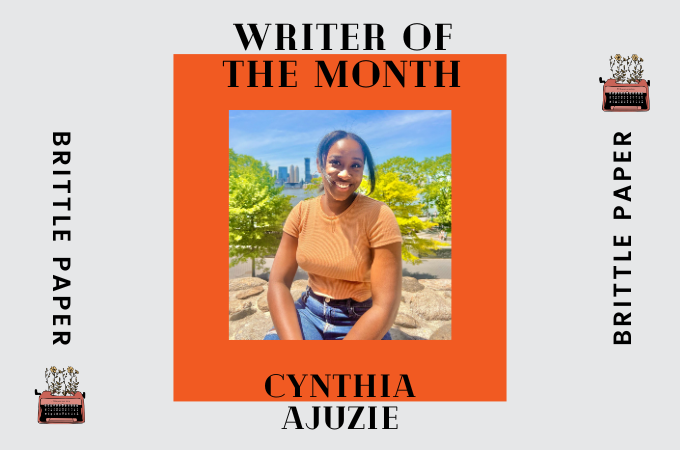
Brittle Paper’s Writer of the Month for August is Cynthia Ajuzie!
Cynthia Ajuzie is a Nigerian American writer who grew up in Baltimore, Maryland. As a daughter of immigrants, she struggled to reconcile her two cultures and often questioned her identity in both. However, writing often functioned as an outlet for her amid the struggles of being a black woman in America and a first-generation American.
Cynthia’s passion for writing deepened as she attended the University of Virginia and became immersed in different creative communities. Her literary focus began shifting towards Nigerian narratives as she savoured the memories her parents recounted about their experiences building a life for themselves away from their home country. After obtaining a Bachelor of Arts in Literary Prose, Cynthia taught high school English for three years in Houston, Texas within an underserved community. Working at a primarily Black and Latinx Title 1 school increased her awareness of the widespread educational inequity that alarmingly characterizes many lower-income schools. Although she is no longer teaching high schoolers, Cynthia remains passionate about working to loosen systematic racism’s grip on the education sphere.
With introductions done, let’s sit down for a chat with the talented Cynthia:
Brittle Paper
Cynthia, congratulations on being our August Writer of the Month! Your piece “No, It Is Not Your Fault” is such a fantastically told story. You touch on so many topics, but it is tied up in one very beautiful narration and I genuinely think this is one of my favourite pieces I’ve ever published. Before we talk more about the story, let’s talk about Cynthia Ajuzie.
How did you become the writer that you are today?
Cynthia Ajuzie
Hi Tahzeeb! Thank you so much for your kind words regarding my piece. As an emerging writer, I’m always taken aback when someone says that my stories resonate with them and cause them to feel various emotions. So, I’m grateful that you speak so highly of my piece. I would say my origin story as a writer has had quite a few detours.
From a young age, I was strongly pushed towards pursuing a field in medicine. Being a child of Nigerian immigrants, I understood that my parents had certain visions for their children when they immigrated to America, so I rarely questioned the expectations they placed on me. STEM did fascinate me a lot. However, I was also greatly captivated by the stories and lives of my parents. I felt as though their experiences needed to be documented and stitched among the cloth of immigrant narratives that connects many people who understand what it means to leave behind a home and try to build another.
But I doubted my abilities to actually turn writing into a profession and feared disappointing my parents — I’m one of five children and definitely took on the brainiac archetype. Eventually, I found myself during my junior year of college very unhappy with the pre-med path I was on, and I had to make the tough decision to let go of my parents’ med school dreams and pursue a different path, which I’m sure you can imagine wasn’t the easiest pill for my family to digest. But I went on to teach in Houston in an underserved community for three years after I graduated with an English degree and that was such an eye-opening experience that I am grateful to have taken part in. Now, I’m currently pursuing a Master of Fine Arts degree at Rutgers University-Newark and I’m having such a wonderful time being immersed in a community of incredibly talented writers.
Brittle Paper
I can only imagine how difficult it must have been to pursue your own path and congratulations on entering the master’s programme! I wish you all the strength and caffeine it takes to get this done!
I also love the line you used above where you said, “their experiences needed to be documented and stitched among the cloth of immigrant narratives.” That’s such a beautiful line and it is also what I would like to bring up later when we discuss your story. But for now, I am still very interested in getting to know you and the privilege of sharing who you are with our readers. I usually ask every WotM a variation of the same few questions at this part of the interview because I think it’s quite telling of their character as a writer and creator. The first is always, what is your favourite book of all time?
Cynthia Ajuzie
I definitely should’ve known this question was coming! I think it’s a great question to ask writers, but it’s also nerve-wracking for writers to answer because there are so many masterful creatives that have contributed to the literary canon that greatly influences me. That being said, I usually answer this question by saying the first book I read that showed me the power of storytelling, specifically the aspect of the art that enables others to have a window into experiences that differ vastly from their own realities. The first book that allowed me to have that experience was A Thousand Splendid Suns by Khaled Hosseini. I remember reading it for a high school project and being unable to put it down because I was so gripped by the way Hosseini skilfully detailed the lives of the two female protagonists. I felt like I was right there with them in each scene. I found myself experiencing a multitude of emotions at the horrors they faced. I feel like one of the marks of a strong writer is being able to utilize their storytelling skills to get their audience to have genuine emotional reactions towards the characters they’ve created.
Brittle Paper
When I try to remember one of the first books that gripped me and made me feel my emotions so strongly, it is also A Thousand Splendid Suns. I was quite young when I read it and I remember it being the first book my mom and I both read, and it was that moment of feeling so many things and only being able to discuss it with someone who also had that same experience. Hosseini is truly a skilful writer as you say.
Which writer do you think has not received their fair share of flowers?
Cynthia Ajuzie
Oh wow, there are so many gifted writers who have written ground-breaking narratives but have not yet amassed their deserved level of fame. One particular writer who comes to mind is Raven Leilani. Although her amazing book, Luster, did receive awards, I think she deserves even more recognition as a writer because of how masterfully she weaves together sentences to form multi-layered and yet relatable narratives. Another author who comes to mind is Gerardo Sámano Córdova. His debut novel, Monstrilio, was released earlier this year and it was both disturbing and beautiful! I think it should definitely become part of everyone’s summer reading list.
Brittle Paper
Some great recommendations!
Finally, if you could have a dinner party with your favourite artists, who would they be?
Cynthia Ajuzie
This is another great question that I’ve heard before but is always difficult for me to answer because there are, once again, so many amazing creatives who I could learn so much from if I had the opportunity to have them all in the same space. So, this list of people is far from exhaustive, but I would certainly have Chimamanda Ngozi Adichie there. She’s a phenomenal writer whose work has inspired me by giving me the courage to believe in the importance of telling stories that highlight Nigerian characters. I would also love to have Ta-Nehisi Coates and Viola Davis there too. Coates is another talented writer who presents transformative ideas in a riveting way. I got the chance to dissect an excerpt from his nonfiction book, Between the World and Me, when I was teaching high schoolers in Houston and that was awesome because it fuelled some thought-provoking discussions among my students. Davis is a fearless actress who exudes grace and wisdom in practically every project she takes on, so I’d love to have conversations with her too. Lastly, I would have two of my favourite comedians, Trevor Noah and Hasan Minhaj, because I think they would provide great knowledge and great jokes during the dinner to keep it light-hearted.
Brittle Paper
I would love to join this dinner party, particularly to meet Davis but also to talk politics and share some jokes with Minhaj.
Now, I see that during your time at the University of Virginia, you contributed your writing to the theatrical production, The Black Monologues, and that your piece was also performed by the university’s community. What was it like to write for a theatre production and how was it to see your work actually being performed?
Cynthia Ajuzie
It was so exciting to be able to write for The Black Monologues and see my piece performed! During that time, I was still trying to learn how to take myself seriously as a writer and was insecure about my ability to become a strong storyteller. So, being able to submit work to The Black Monologues and have it be performed was truly affirming for me as a creative. The specific piece I shared was based on a personal experience I had involving a woman who was expressing colourist sentiments towards me. The experience happened when I was about eleven years old and it really took a toll on my self-confidence because it made me aware of how I do not fit the Westernized notion of beauty that’s often characterized by fair skin and straight hair. When I was finally able to write about the experience years later as a college student, I was nervous to submit it anywhere because sharing your work as a creative takes an incredible amount of vulnerability. However, it was very cathartic being able to see it performed and hear the positive reaction from the audience. I’m very grateful to have that experience be part of my writing career.
Brittle Paper
I’m truly sorry you ever had to experience that, especially at a young age which is always the unfortunate reality, but it’s empowering to see how you channelled that into your writing as a form of healing. And to also share that experience in such a way, it is really inspiring. Your way of intertwining very real experiences, be it personal or relatable, is evident in your May piece, “No, It Is Not Your Fault,” which is a very layered story. We have a woman who is pregnant, we observe her inner monologue about her life and family background, we learn about immigration perspectives, and, in a mirror-type scenario, we also watch our protagonist watch another woman who is a mother and Nigerian immigrant in America. It is quite amazing how you are able to weave all of these narratives into such a wonderfully succinct piece. Is the inspiration behind this story like the piece itself, in that it is drawing on a variety of experiences?
Cynthia Ajuzie
That’s a great question! I wrote this piece a few summers ago pretty quickly, which is uncanny for me because I am a very slow writer. But, I usually think of characters first before I think of plots or scenes or settings. So, I thought of Kasi initially and wanted her to be a young Nigerian American girl who was struggling with an issue that was stereotypically contentious in the Nigerian community. I like being able to generally relate to my characters and they tend to represent some facet of who I am. So, I think part of the reason why this story was considerably easy for me to write is that, as you heard through my origin story, I am familiar with the anxieties that follow dealing with something that is traditionally contentious in one’s culture.
As a first-generation American, I find that it’s often really difficult to mend the two cultures I have since they are typically not complimentary. I decided to make Kasi’s “big” issue her pregnancy out of wedlock because I knew it was something my parents would probably disown me over (even at this age!). I wanted her fear and anxiety to be palpable to readers. I also wanted to tap into what generational disconnect can look like between parents and their children, especially for children of immigrants. Sometimes it feels like there are literal worlds separating me from my parents, but I think that feeling is pervasive among first-generation children. So, I wanted to write a piece that captured that sentiment. At the end of the story, though, I also wanted to draw attention to how even though there are many differences between parents and their children, there are often similarities that exist if we’re paying close enough attention to spot them.
Brittle Paper
I think you definitely succeeded in capturing those sentiments and making your reader feel every single angst and emotion. I hung onto every word you wrote but my absolute favourite is, “The woman seems to have hit her child’s hand away from her purse. The little girl tries to hold her emotions in—a feat that she will most likely learn to master one day as the daughter of immigrants.” This imagery of this little girl having to struggle to do this one isolated thing but having it represent a lifetime of experiences is very powerfully done.
Cynthia Ajuzie
I appreciate you saying that sentence was one of your favourites because it’s certainly a line that I was hoping would resonate with a lot of readers. I think that immigrant children have to learn many skills that make their childhood experiences a bit unique compared to non-immigrant children. A lot of my first-generation American students in Houston had to act as translators for their parents because their parents’ first language was Spanish. I’ve also heard stories from my first-gen friends saying that they’ve functioned as accountants, teachers, typists, spreadsheet gurus, and business managers for their parents. We often have to take on so much at a young and unqualified age that it makes us forget that we should also prioritize our well-being and take note of our emotions, instead of glossing over them in order to achieve the next thing our families may depend on us to do.
Brittle Paper
That’s a very important issue and you have a gift of raising these issues so effortlessly in your story.
On Friday we get to read a new piece from you. Does this story follow the themes of the previous one?
Cynthia Ajuzie
I am excited to share Friday’s story with you all because it continues to touch on similar themes and ideas that I hit on in “No, It Is Not Your Fault,” but it also brings in a supernatural element. I explored science fiction recently under the guidance of the incredibly talented Akil Kumarasmy and it deepened my budding desire to start playing around with more fantastical aspects of storytelling, especially since Nigeria has a rich traditional theological heritage. I hope that readers find Friday’s piece to be both intriguing and relatable.
Brittle Paper
I don’t doubt for a second that we will thoroughly enjoy the new story!
Cynthia, before we go, is there anything you would like to share with our readers about yourself?
Cynthia Ajuzie
Oh, this is hard! It makes me think of those questions that people ask when they say “describe yourself in a word.” I’m really bad at those questions because I am still learning so much about the person I’m becoming. But a big part of my personality that I think is here to stay is my goofiness. I enjoy joking around with friends or putting on a funny show or movie during my free time. As I mentioned earlier, I grew up in a fairly big family, so there are many memories I have of being silly with my siblings or dancing with my family to the latest Afrobeats hit, so I think that joy is something I really value and try to exude as a person.
Brittle Paper
That’s a wholesome note to end on! Thank you so much for this interview and for being one of my favourite writers to work with. Here’s to many more stories!
For more of Cynthia’s work, be sure to check back in on Friday, and for more interviews with our writers, check out our last month’s with Mihlali Mbobo here.


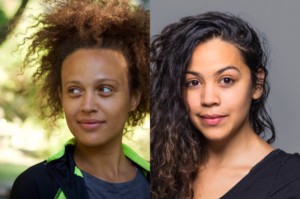
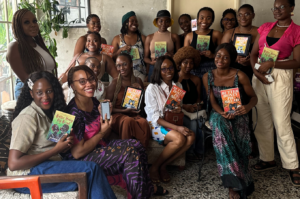
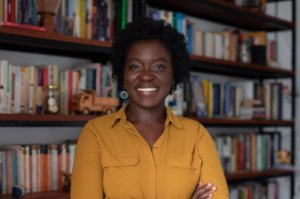
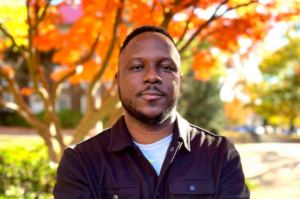

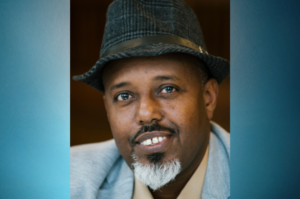

COMMENTS -
Reader Interactions